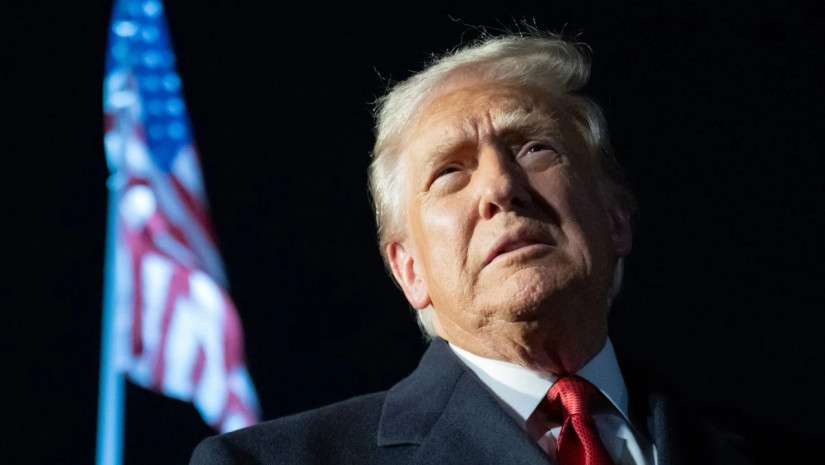The myth of Donald Trump’s absolute power rests on everyone believing it’s true.
So, hints of vulnerability, successful challenges to his authority, or portents of a not-so-distant future that he doesn’t dominate spell political danger for the president.
The commanding first nine months of the second Trump administration were anchored on the premise that if you don’t like what he’s doing — try stopping him. Trump, in many cases, outraced legal and political checks and balances meant to constrain presidents and imposed his audacious view of vast executive authority.
He shattered decades of convention at home and abroad, launching trade wars and spurning allies. He’s sent troops into US cities, sparking constitutional crises; gutted entire government departments; and bullied universities, legal firms, media organizations and corporate chieftains, who bent to his will.
The republic’s defenses aren’t dead. Constitutional and political accountability is always retrospective and takes a while to stir. That’s one reason why Trump’s wild and whirling start to his second term has stirred fears of autocracy.
But a sense of permanence and omnipotence conjured by the president just took a dent, following a bumper off-year election night for Democrats, apparent skepticism among Supreme Court justices of Trump’s emergency tariff powers, and reminders that the Constitution should deprive him of a third term.
Winning gubernatorial candidates Abigail Spanberger in Virginia and Mikie Sherrill in New Jersey might only have held serve in blue states. But they delivered bigger-than-expected defeats to rivals who embraced Trump and MAGA values.
Mikie Sherrill, Abigail Spanberger and Zohran Mamdani
Getty Images/Reuters
Even before their big wins, Democrats discovered a taste for fighting the president’s fire with their own. California Gov. Gavin Newsom on Tuesday praised voters who backed a redistricting plan to counter Trump’s gerrymandering in Texas with the words. “We stood tall and we stood firm … after poking the bear, this bear roared.”
Another Democratic governor, JB Pritzker of Illinois, has spent weeks resisting Trump’s social media threat to impose “Chipocalypse Now” in the Windy City. And some Democratic-run states pledged to develop their own public health guidance following Health and Human Services Secretary Robert F. Kennedy Jr.’s evisceration of the Centers for Disease Control and Prevention.
There have been small setbacks for the president, too, such as the restoration of Jimmy Kimmel’s late-night show on ABC after a viewer and advertiser revolt. And more universities have pledged to resist the administration’s attempts to impose its ideology by withholding federal funding. The more entities that show he’s not an unstoppable force, the more momentum may turn into cresting opposition.
Political movements always start small. It took years for the civil rights movement and Vietnam War resistance to crank up. But each show of dissent breeds more. As former President Barack Obama put it on the last episode of Marc Maron’s podcast: “What’s required in these situations is a few folks standing up and giving courage to other folks. And then more people stand up and kind of go, ‘Yeah, no, that’s not who we are. That’s not our idea of America.’”
CNN












